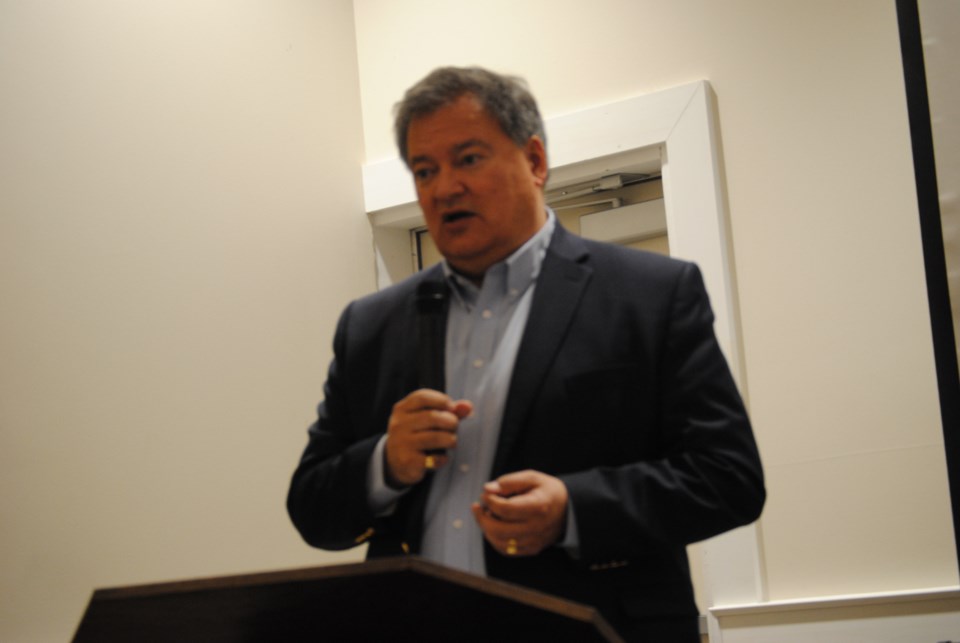Dr. Mike DeGagné, President and Vice-Chancellor of Nipissing University spoke Monday before members of the North Bay Rotary Club at the Grande Event Centre.
DeGagné outlined a three-point action plan to achieving the goal of truth and reconciliation. DeGagné, the first indigenous university president in Canada touted education, call to action, and community response as the building blocks necessary as the process moves forward.
DeGagné noted that there were reoccurring themes when discussions about truth and reconciliation take place. "There seems to be a tremendous curiosity about understanding residential schools and treaties. We find ourselves at [Nipissing] University doing a lot of public presentations," on these subjects.
When asked about the series of public events on indigenous culture being hosted by George Couchie, DeGagné was of the opinion that no matter how the message is delivered "we are all working toward the same goal. We're in an environment now where people want to get things done. We're working on issues around aboriginal relations and reconciliation to make a difference in people's lives today. We're trying to do that.
"There is a rights discussion which is much longer and there is a portion of our community, especially the political portion that really likes to hammer away on our rights. We're practitioners. We just want to make sure that tomorrow things are a little bit better in terms of our relationship, so we're very practical now."
As part of his address, DeGagné pointed to the abject failure of the Royal Commission on Aboriginal People that stemmed from the Oka crisis in 1990 as a reason for these talks.
Following his speech, DeGagné elaborated on the comparison of the Oka time period to today. "There is a portion of the community that is impatient and has every right to be. You don't have drinking water, or your children are in the care of child services or are overly incarcerated or face various health problems. you're impatient."
DeGagné related his recent experience in Sioux Lookout, where 250 members of the community attended a screening of Gord Downie's Charlie Wenjack project in the dead of winter. The event marked what would have been the 63rd birthday of Wenjack, the 12-year-old boy who died while trying to run 600 kilometres home from residential school. DeGagné sees this as progress and an improvement in the strength of the community over 25 years ago.
The Nipissing University head says that the conversation is getting better, perhaps finally moving beyond the education phase.
"People get it. I think people are getting it all of a sudden, too. After every presentation I give, somebody will come up after and you can see that they've been crying, or were absolutely struck by it. They'd never really thought it through, about residential schools, for example," said DeGagné.
Agreeing that his prominent position affords him the opportunity to do good work when it comes to the three facets of the truth and reconciliation action plan, DeGagné added, "It gives me a soapbox to stand on once in a while, to reach people so that it has an impact. Nipissing University is highly regarded for aboriginal education, so it's a good fit."



